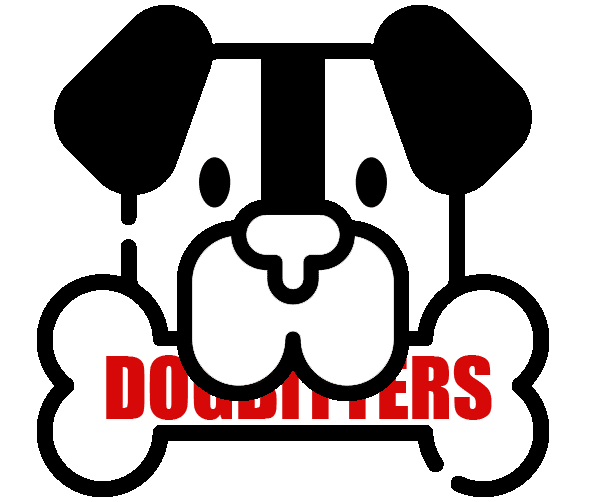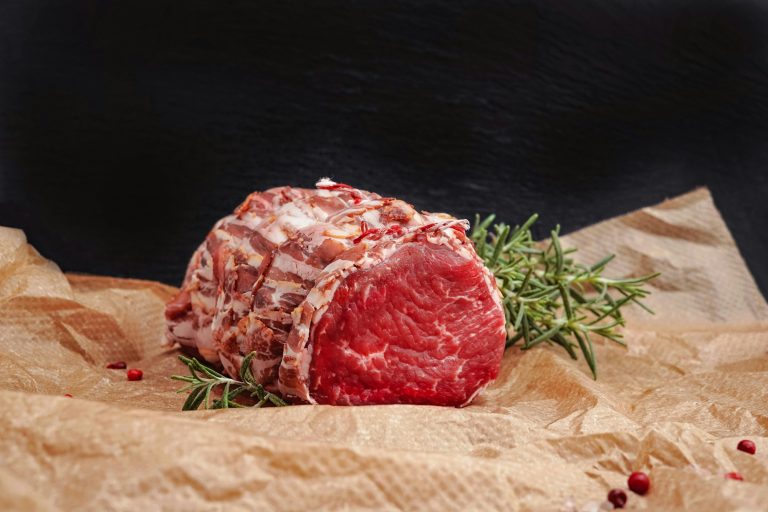Pork for dogs: a seemingly tempting choice, but with potential consequences for their health. While many of us enjoy the deliciousness of this type of meat, it is essential to ask ourselves if it is, in fact, a healthy and safe option for our furry friends.
In this exploration of canine nutrition, we’ll look at why pork can raise questions about the diet and health of these loving pets.
CONTENT:
- Saturated fat and cholesterol
- Parasites and bacteria
- The risk of food allergies caused by pork for dogs
- Excessive processing
Saturated fat and cholesterol
These are two components of pork that could have a negative impact on dogs’ health. Saturated fat, especially when consumed in significant amounts, has been associated with increased blood cholesterol levels. This combination can contribute to the development of cardiovascular health problems and increase the risk of heart disease and obesity in dogs, similar to the effects seen in humans.
Obesity in dogs is a growing problem and can lead to numerous health complications, including joint problems, diabetes, and a decreased quality of life. In addition, excess saturated fat can contribute to increased cholesterol levels, which in the long term can affect the normal functioning of the dog’s cardiovascular system.
We also need to consider that the nutritional needs of dogs may be different from those of humans. A balanced diet adapted to their species can significantly influence the health of pets. Therefore, when giving pork to dogs, it is important to be aware of the quantities, frequencies and ways of preparation to minimize the negative impact on their health and promote a healthy and active lifestyle.
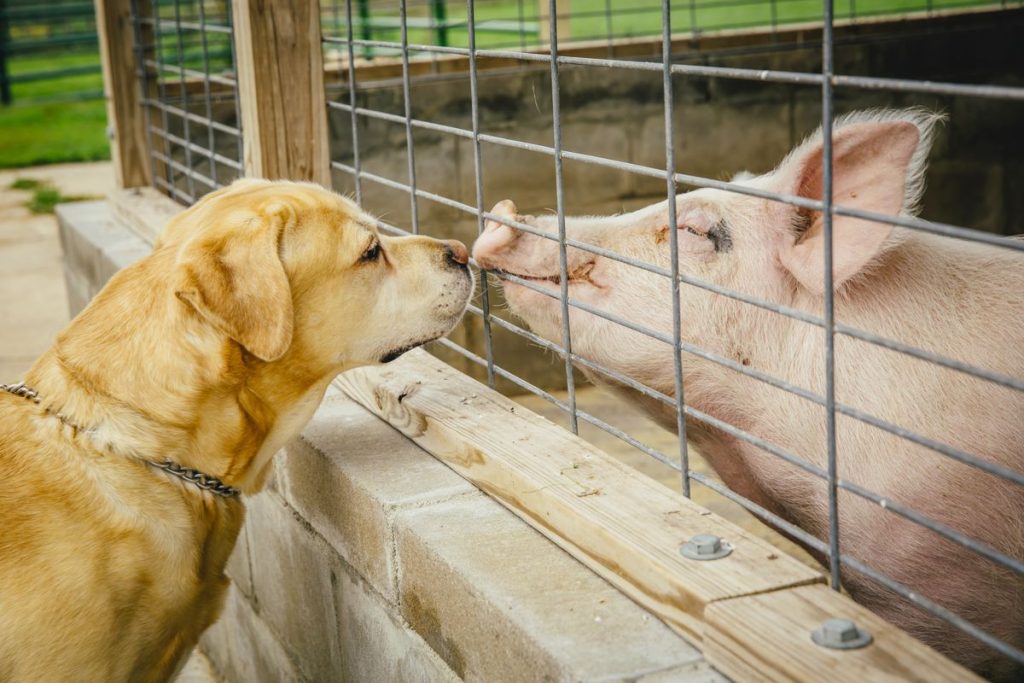
Parasites and bacteria
Parasites and bacteria are another major concern associated with dogs eating pork. Pork is known for its potential to host various pathogens, such as Salmonella or Trichinella, which can trigger severe infections and negatively affect the health of pets.
Salmonella is a bacteria that can cause food poisoning in both humans and animals. In dogs, symptoms can include severe diarrhea, vomiting, fever and general weakness. Eating undercooked pork increases the risk of contamination with this bacteria, and dogs can become hosts for Salmonella, putting human family members at risk.
Pork may also contain larvae of the parasite Trichinella, which can cause trichinellosis. This disease can affect the muscular system of dogs, causing symptoms such as fever, muscle pain and general weakness. Eating raw or undercooked pork is the main route of transmission of this parasite.
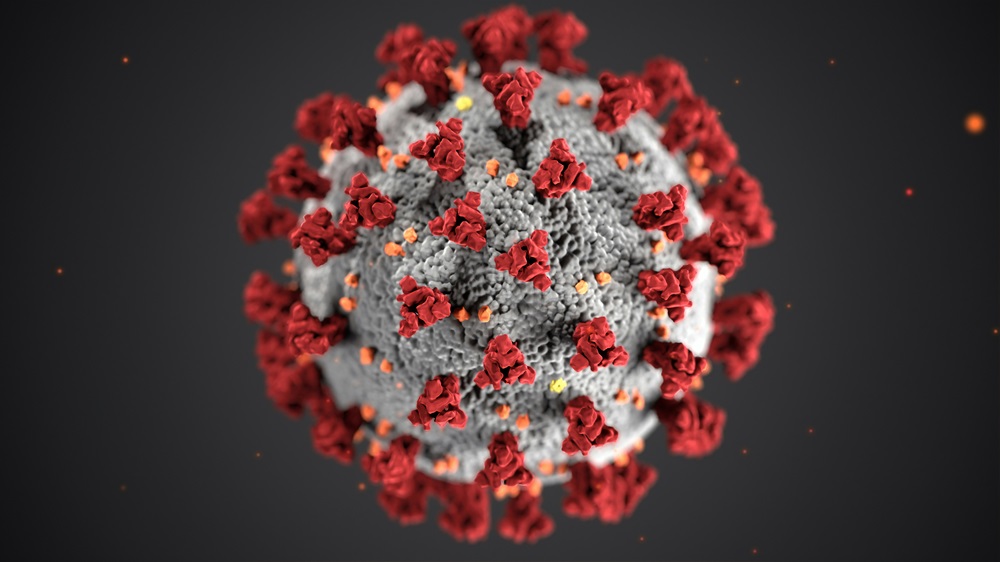
The risk of food allergies caused by pork for dogs
Dogs can develop food allergies to certain types of meat, and pork is no exception. Frequent consumption of this meat can lead to allergic reactions, manifested by itching, skin rashes, or digestive problems. It is important to be aware of the specific dietary needs of dogs and avoid foods that may cause such reactions.
-
Manifestations of pork allergies
Frequent consumption of pork can trigger various allergic reactions among dogs. These manifestations may include intense itching, rashes, skin inflammation or digestive problems such as diarrhea and vomiting. It is important to pay attention to these signs and associate them with the food diet to identify potential allergies.
-
Awareness of the Dietary Needs of Dogs
Each dog has specific dietary needs, and awareness of these individual requirements is essential to maintaining their health. If we notice signs of pork allergy, it is recommended to consult a veterinarian to identify the specific source of the problem and adjust the diet accordingly.
-
Avoiding provocative foods
To prevent the occurrence of allergic reactions, it is crucial to avoid foods that have been associated with such manifestations. For dogs with pork sensitivities, it is recommended to explore safe and healthy food alternatives such as chicken or turkey, which can provide essential protein without causing allergic reactions.
-
The role of the veterinarian in the management of food allergies
Your veterinarian is the best resource to help manage food allergies in dogs. He can recommend specialized tests to identify the specific allergen and give advice on adjusting the dog’s diet according to his individual needs.
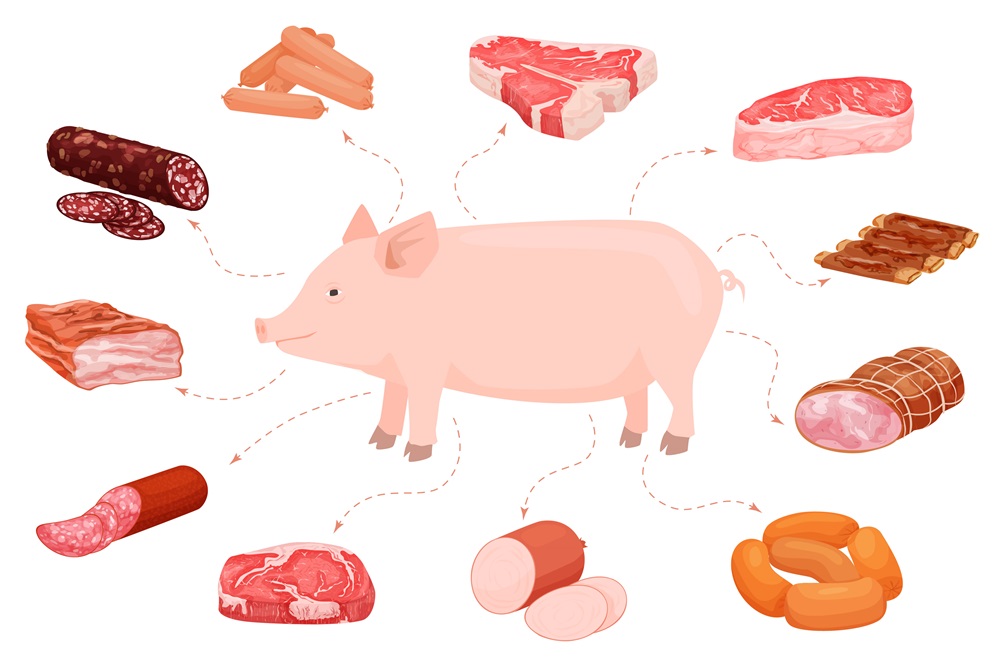
Excessive processing
Pork, when processed and made into products such as ham or sausages, often contains an extensive range of additives, preservatives and significant amounts of salt. These components can have a negative impact on the health of dogs and should be carefully considered when including such foods in their diet.
-
Additives and preservatives in pork
Processed pork products are often enriched with additives and preservatives designed to extend the product’s shelf life and improve its taste or appearance. However, dogs can react negatively to these added chemicals, showing symptoms such as nausea, diarrhea or digestive problems.
-
Excess salt and the risk of high blood pressure
The significant amounts of salt present in many pork products can be harmful to the health of dogs. Excessive salt consumption can lead to high blood pressure, negatively affecting the cardiovascular system of animals. High blood pressure in dogs can have serious consequences, including heart and kidney disease.
-
Impact on the digestive system
Processed pork foods can be difficult for dogs to digest due to the presence of additives and preservatives. Digestive problems such as indigestion or diarrhea can occur in response to this excessive processing, affecting the animal’s overall well-being.
In conclusion, when choosing to include pork in a dog’s diet, it is important to avoid processed products and opt for a more natural and balanced approach. Consulting with a veterinarian can provide guidance on appropriate food options and will help maintain a healthy diet for our furry friends.
